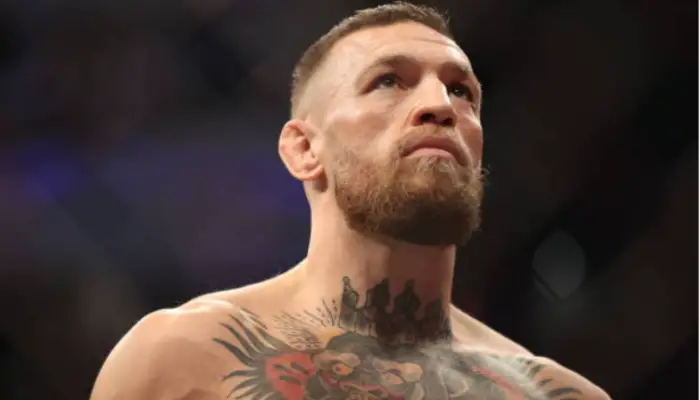Mixed martial arts (MMA) fighters are some of the toughest and most skilled athletes in the world. They train for months, if not years, to compete at the highest level of competition.
Fighters face a unique set of challenges that can lead to mental health problems such as anxiety, depression, and post-traumatic stress disorder (PTSD).
In this article, we will explore the impact of MMA on mental health and discuss how fighters and the MMA industry can promote better practices for mental health in MMA.
The Pressure to Perform
MMA fighters face a lot of pressure to perform at the highest level. The sport is highly competitive, and fighters are expected to put everything on the line when they step into the cage.
This pressure can manifest itself in various ways, including anxiety, fear, and self-doubt. Furthermore, fighters are also under constant scrutiny from the media, fans, and their coaches, which can increase their stress levels.
The physical demands of the sport also add to the pressure. MMA fighters have to be in top shape to compete, which means adhering to a strict diet and training regimen.
This can put a tremendous amount of pressure on fighters to maintain their weight or to gain muscle mass.
One study found that almost 60% of MMA fighters reported experiencing weight cutting symptoms, including weakness, hunger, and difficulty concentrating.
Many fighters also feel the pressure to be perfect in their training and in the cage. This pressure can lead to feelings of inadequacy and low self-esteem.
It can also cause fighters to push themselves too hard, leading to overtraining, injury, and burnout. In fact, one study found that over 70% of MMA fighters reported experiencing high levels of physical and emotional exhaustion.
The Physical Toll on Mental Health in MMA
MMA is a physically demanding sport, and the injuries that come with it can take a toll on a fighter’s mental health.
Fighters are at risk of sustaining traumatic brain injuries (TBIs), which can lead to conditions such as post-traumatic stress disorder (PTSD). Additionally, fighters can also experience chronic pain from injuries, which can lead to depression and anxiety.
One study found that up to 40% of MMA fighters suffer from symptoms of depression and anxiety. Additionally, fighters who have sustained TBIs are at a higher risk of developing both depression and PTSD.
These conditions can impact a fighter’s performance in the cage, as well as their overall quality of life outside of the sport.
The MMA Industry and Mental Health
Despite the challenges that MMA fighters face when it comes to mental health, the sport has been slow to address these issues. In fact, up until recently, many MMA promotions did not require fighters to undergo mental health evaluations as part of their pre-fight medical checkups.
However, some promotions have started to take a more proactive approach to fighter mental health.
For example, the Professional Fighters League (PFL) recently partnered with the University of Miami’s Miller School of Medicine and the Muhammad Ali Parkinson Center to provide fighters with comprehensive medical evaluations, including mental health screenings.
Additionally, the UFC has implemented a wellness program that includes access to mental health resources, such as therapy and counseling services.
Fighters have also started to speak out about mental health issues in the sport. Former UFC fighter Tyson Griffin has been vocal about his struggles with depression and anxiety, and he now works to promote mental health awareness in the MMA community.
Conor McGregor Talks Mental Health
In a 2019 interview with ESPN, Conor McGregor talked about the importance of mental health and how he takes care of his own mental well-being.
He stated, “It’s something that I’ve become more aware of as I’ve gone on in my career. You’ve got to look after the body, and you’ve got to look after the mind as well.
It’s a very important thing. I do a lot of meditating, a lot of brain exercises, and I take care of my diet as well. I think all of those things come together and have a positive effect on my mental health.”
Additionally, fighters like Brian Stann and Chuck Liddell have partnered with the Wounded Warrior Project to raise awareness about the mental health challenges that veterans face.
Their stories are helping to break down the stigma surrounding mental health in combat sports, encouraging others to seek help when they need it.
What Can Be Done?
To promote better mental health practices in MMA, there are a few key steps that can be taken. First and foremost, MMA promotions and athletic commissions should make mental health evaluations a mandatory part of pre-fight medical checkups.
This will help identify fighters who are at risk for mental health conditions and ensure that they receive the proper treatment and support.
Additionally, MMA promotions can provide their fighters with access to mental health resources, such as therapy and counseling services.
These resources can help fighters manage the stress and pressure that comes with the sport, as well as support them as they recover from injuries.
Fighters can also take steps to protect their mental health. This includes taking time off from training and competition when they need it, as well as seeking out mental health resources when necessary.
Fighters can also work to create a support system of coaches, teammates, and friends who can provide them with emotional support and encouragement.
Conclusion
MMA is a physically and mentally demanding sport, and the pressures of competition and the physical toll of training and fighting can lead to mental health problems.
However, by making mental health evaluations mandatory, providing resources for mental health support, and encouraging fighters to prioritize their mental health, the MMA industry can promote better mental health practices in the sport.
By addressing mental health issues in MMA, we can help fighters perform at their best and improve their overall quality.
















